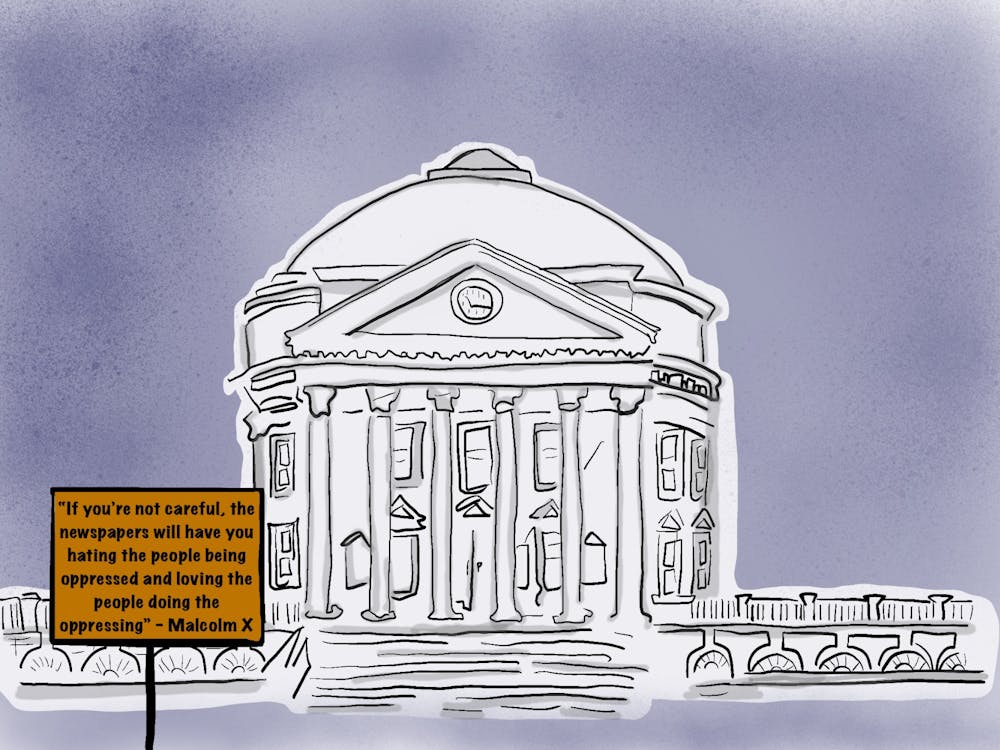After the handful of events that sent waves of shock and distress reverberating through the University community last year, many students looked to professors to respond. In my conversations with friends and classmates during this time, I noticed a discrepancy in the degree of response from different professors. I found that professors in classes whose subject matter in some way related to topics such as race and gender tended to be more likely to discuss what was going on in class.
Although the University was put into (several) unique situations last year, these moments of crisis revealed the difficulty of navigating the relationship between professor and student. In normal circumstances, some professors take on the role of personal mentors, offering themselves as a support system for their students. Other professors seem to view their role as strictly educational. Usually, the distinction between these two roles is a neutral one. However, in circumstances like the events of last year, these dynamics can become problematic.
The argument that professors play no role in our lives other than an educational one is problematic because it treats education as something that only occurs within the confines of the classroom. It is the responsibility of professors to acknowledge and engage with the experiences of their students both inside and outside the classroom.
This fall, in HIUS 3559: From Motown to Hip Hop, Professor Claudrena Harold addressed the demographic makeup of our class, calling it “the most integrated class at U.Va.” In a school whose undergraduate population hovers around 70 percent white, this class has been the only one I have taken in which I have been in the racial minority. Professor Harold related her observation to the course material, acknowledging that while we are studying African-American cultural production, we should also consider how all people engage with those materials. Incorporating the demographic makeup of our class into her lecture added a dimension of critical thinking I may not have arrived at on my own.
Unfortunately, Professor Harold is in the minority of professors I’ve had who have engaged with their students so directly. Many professors teach as if our involvement in the larger University community ends when we walk into the classroom, and resumes when we leave. While it may seem unfair to put the onus on professors to discuss difficult topics such as race and sexual violence, the discomfort that can arise in these conversations does not justify pretending these topics hold no relevance within the classroom.
One arena in which there is a stark demographic contrast is in language classes. Five out of six French courses I’ve taken at the University have been majority female. In my experience, students in upper level French courses tend to be humanities majors. When I started taking German last year, I was taken aback by the fact that I was suddenly one of only a few girls in the room. In addition, most people in my German classes have been science or engineering majors. Clearly, these differences are significant to the course material. The gender distinction reveals that notions of masculinity or femininity play some role in the selection of language courses. However, I have never had a professor in a language class discuss the demographic makeup of the class and what it might mean for how and why we engage with the subject matter.
Before coming to college, many students have not been in environments where they have needed to confront and navigate difference. One way of addressing this would be to include a course or seminar that all first-year students would have to take to discuss race, gender, etc. However, for students with demanding and tightly rationed academic paths, this can be unrealistic. For this reason, professors should try and incorporate these kinds of valuable conversations into their classrooms. Our relationships with our professors should reflect the dynamic nature of education, which extends beyond just the classroom.
Mary Russo is a Senior Associate Editor for The Cavalier Daily. She can be reached at m.russo@cavalierdaily.com.




